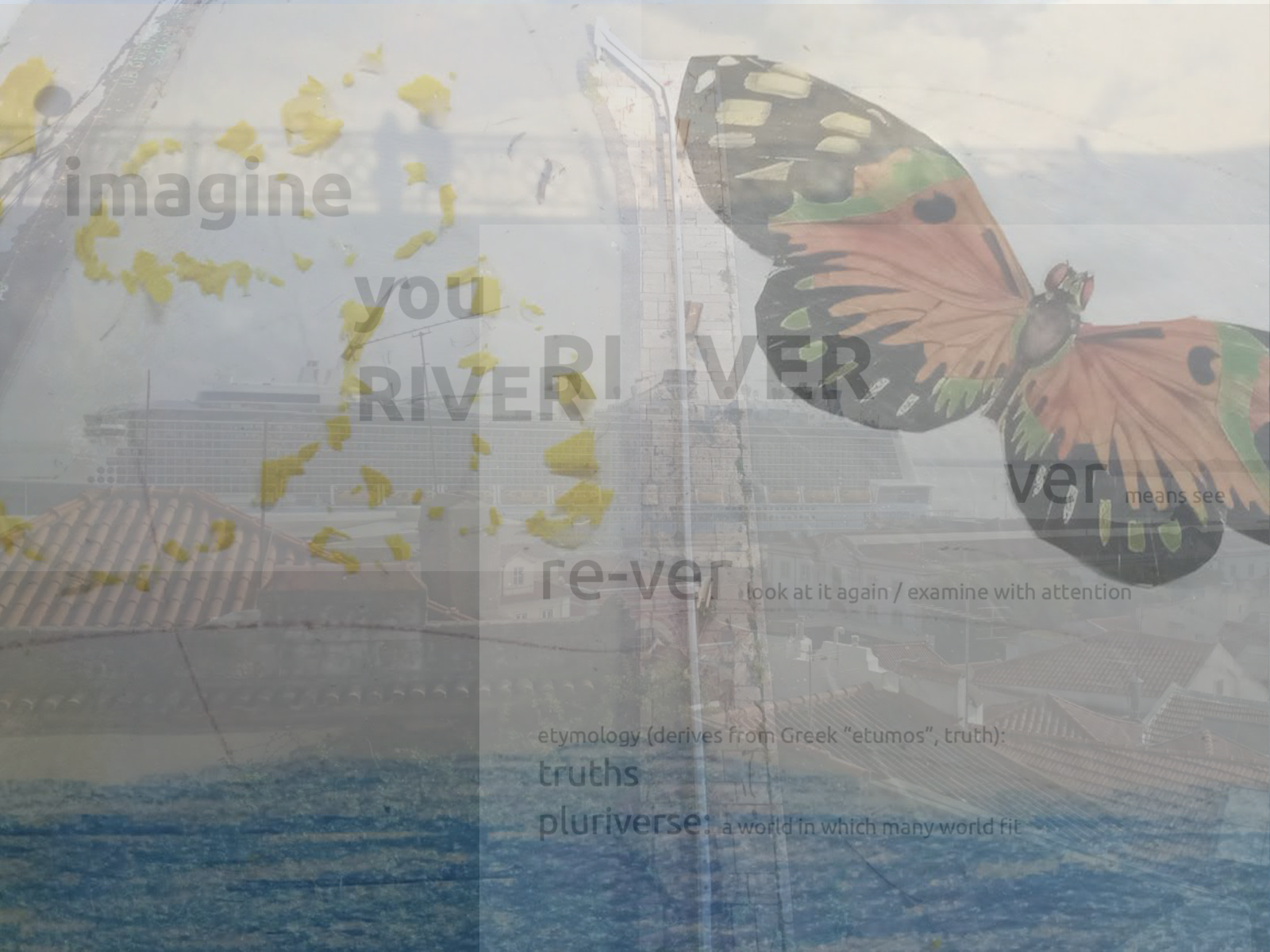Ecopoetic glossary of urban hospitality
Ecopoetic glossary of urban hospitality
The RiVER project is coordinated and animated by Kitti Baracsi, a critical educator, researcher and curator who works at the intersection of urban research, collective learning and art.
The itinerant project Ri/Ver: another look at the city, is a nature-centered observatory of urban transformations. Ri/VER refers to ‘river’, but also stands for re-ver, i.e. revise, see again, see from a different angle. The central idea of the project is that thinking through the river shifts the anthropocentric and short-term focused understandings, thus we can move stagnant conversations and understand the conflictive transformations in our cities. How do the emotional, political, economic and social landscapes change if we locate the river in the centre of them? This conceptual frame is a base for multimodal ethnographic research, as well as a curatorial and artistic concept.
Those who participate in the creative dialogues and workshops, impersonate the river to learn, understand and imagine possible presents and futures and understand the transformations in course from a different angle. They are asked to share their experiences about the river(s), but most importantly, to imagine they are the river.
The following ‘beyond textual’ glossary builds on words and ideas and images that emerged during the workshops of this continuous and itinerant project, including the ones held in partnership with the Bairro Horizonte Residents’ Association, like the Sounds of Tejo workshops and the meeting with the Liquid Becomings (European Pavilion 2024) Tagus crew in November 2024. It also incorporates ideas and imaginations of artists, urban researchers and ‘inhabitants’ with different backgrounds and experiences.
The glossary combines the collected ideas with an inquiry into concepts from a variety of fields, across contexts and worldvisions, intertwining also with the author’ research, community, cultural and artistic work on urban conflicts and transformations and inner emotional landscapes of mobility and immobility, hospitality and inhospitality, art, culture, city and nature.
The current text should be read as a small fragment of an in-construction glossary. It stands as a provocation to rethink our ideas about urban hospitality from a beyond human point of view.
Click on the image on the right to get access to the full PDF of the glossary >>>
